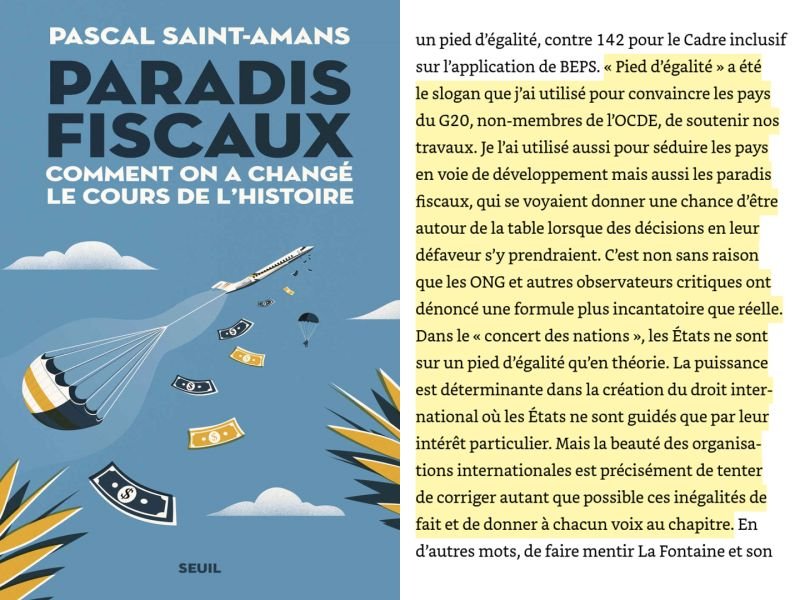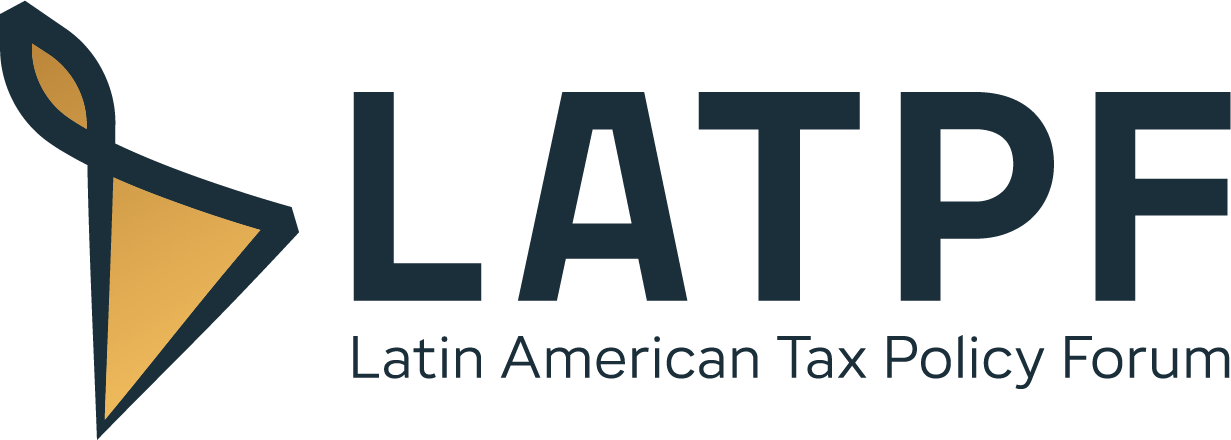📚 In his memoir titled “Paradis fiscaux: Comment on a changé le cours de l’histoire (French Edition)”, Pascal Saint-Amans recounts the negotiations that took place between more than 140 jurisdictions (including OECD – OCDE members, G20 Brasil 2024 countries and others) to advance global tax policy standards during his tenure as Director of the Centre for Tax Policy and Administration.
Readers familiarized with tax policy will recognize themes like the flexibilization of bank and tax secrecy rules, the automatic exchange of information under the CRS (and its interactions with the U.S. FATCA), the landmark BEPS Action Plan and the more recent Programme of Work that includes Pillar One and Pillar Two. In his book, Saint-Amans also addresses the notion of transferring the forum of global tax policy discussions from the OECD to the United Nations, which he says is “very naive […]. [A]t the UN as at the OECD, rich countries are also present and have just as legitimate a right to assert their interests.” (p. 191 – translated from French).
One passage of the book is quite noteworthy for policymakers in developing countries (including those in LatAm). A majority of developing countries are not OECD members but participate in what is called the OECD/G20 BEPS Inclusive Framework, which is described by the OECD as a place where members and non-members participate “on an equal footing” (e.g., on p. 4 of the 2016-2017 Progress Report – https://bit.ly/4czVSja). The International Centre for Tax and Development published a report in 2020 that challenges that notion – it says that “out of 100 non-OECD IF members, 70 did not attend a single working party meeting during 2019. Among attendees, participation was heavily dominated by large emerging economies, […].” (p. 12 – https://bit.ly/4boJH7K). Here is what Saint-Amans says in his book about the origin of “on an equal footing” (p. 306-307 – translated from French):
“‘Equal footing’ was the slogan I used to convince non-OECD G20 countries to support our work. I also used it to seduce developing countries but also tax havens, who were given a chance to be at the table when decisions were made against them. It is not without reason that NGOs and other critical observers have denounced a formula that is more incantatory than real.
In the ‘concert of nations,’ states are only on equal footing in theory. Power is decisive in the creation of international law where States are guided only by their particular interest. But the beauty of international organizations is precisely that they attempt to correct these de facto inequalities as much as possible and give everyone a voice.”
Make of that statement what you will. The book is available for purchase here: https://amzn.to/4cnPgEL 🌎


